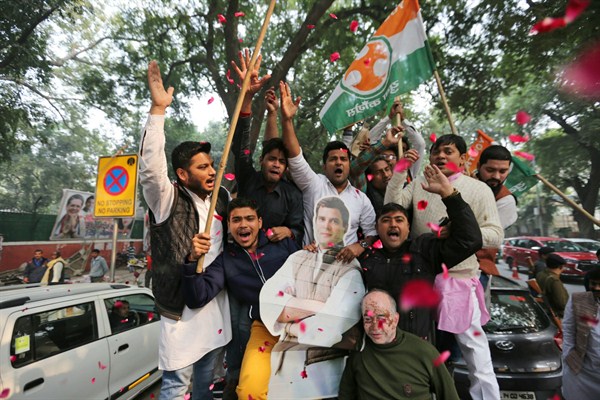India’s ruling Bharatiya Janata Party was ousted from power in three key state elections last week in a rebuke of Prime Minister Narendra Modi’s administration. The results in the heartland rural states of Rajasthan, Chhattisgarh and Madhya Pradesh will likely force Modi to make adjustments in his economic policy priorities as the BJP gears up for general elections set to take place this coming spring. The recent vote also provided a much-needed boost to the opposition Indian National Congress, which captured outright majorities in the state legislatures of Rajasthan and Chhattisgarh while falling just short of a majority in Madhya Pradesh. In an email interview with WPR, Surupa Gupta, a political scientist at the University of Mary Washington in Virginia, breaks down the results, explaining the widespread dissatisfaction with the government in rural parts of India and what Modi will need to do to stay in power next year.
World Politics Review: How was the opposition Congress party, which has struggled since its electoral defeat to the BJP in 2014, able to make such big gains in three rural state elections?
Surupa Gupta: Broadly, these results can be traced to three factors. First, the Congress party, which has seemed rudderless and devoid of vision since its 2014 election loss, finally took some measure of control over the narrative of socioeconomic development that swept Modi into power in 2014. Second, it was able to connect with rural voters by addressing the ongoing crisis in India’s farming sector head-on. Finally, voters looking for change may have decided that the BJP-led governments, at least in Chhattisgarh and Madhya Pradesh, had been in power long enough and it was time to give the opposition a chance.

